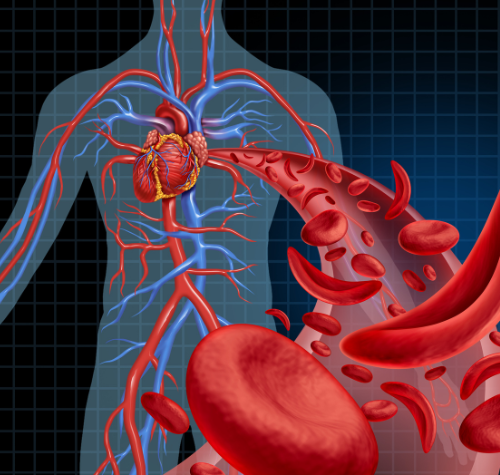Are you looking for foods high in nitric oxide? If yes, then you’ve come to the right place. This article lists some of the top foods that contain high levels of nitric oxide.
Nitric oxide is a molecule that contributes to the body’s ability to create and use muscle energy, blood flow and stabilize blood pressure. Foods that are high in nitric oxide help the body to feel better and live a healthy life.
Nitric oxide (NO) plays a vital role in our body. It helps regulate blood pressure, relaxes smooth muscles, increases oxygen supply to tissues, and promotes cell growth. NO also has anti-inflammatory properties and protects against oxidative stress.
High intake of fruits and vegetables rich in antioxidants such as vitamin C, E, beta carotene, lycopene, lutein, zeaxanthin, and flavonoids can increase nitric oxide production. These nutrients act as free radical scavengers and reduce inflammation.
In this article, we are going to go over six high nitric oxide foods that you can eat to feel better and live a longer life. We hope that this will help you make better food choices and improve your overall health.
What Is Nitric Oxide?

Nitric Oxide is an essential molecule that plays multiple roles within our bodies. It regulates blood flow, aids in muscle contraction, and acts as a neurotransmitter. It is also involved in regulating blood pressure, immune response, and blood vessel dilatation.
The body produces nitric oxide in several different ways. One way is through the breakdown of the amino acid arginine. Arginine is found in many foods, including meats, poultry, fish, nuts, and seeds. The body can also produce nitric oxide from the nitrate and nitrite compounds found in some fruits and vegetables.
Nitric oxide has many benefits for the body. For example, it can help to lower blood pressure by dilating blood vessels. It can also improve blood flow and increase oxygen delivery to muscles. Additionally, nitric oxide can help to boost the immune system and protect against inflammation.
There are many foods that are high in nitric oxide and can help to improve health. These include leafy green vegetables, beets, berries, watermelon, garlic, onions, and dark chocolate. Adding these foods to your diet can help you to feel better and live a healthier life.
What Are The Benefits Of Nitric Oxide?
Nitric oxide is a molecule that is produced by the body and has a variety of important functions. It is a signaling molecule that helps to regulate blood pressure, blood sugar levels, and inflammation. It also plays a role in wound healing and immune function.
In addition to these important functions, nitric oxide is also a powerful antioxidant. Antioxidants are molecules that help to protect the body from damage caused by free radicals. Free radicals are unstable molecules that can damage cells and contribute to the development of chronic diseases such as cancer.
Nitric oxide scavenges free radicals and helps to protect cells from damage. It also helps to reduce inflammation, which is a key factor in the development of many chronic diseases. Therefore, consuming foods that are high in nitric oxide may help to improve overall health and reduce the risk of chronic disease.
How Can You Get More Nitric Oxide In Your Diet?
You can get more nitric oxide in your diet by eating foods that are high in nitrates. Nitrates are converted into nitric oxide in the body, so eating foods that are rich in nitrates can help increase your nitric oxide levels. Some of the best sources of nitrates include leafy green vegetables, beets, and beetroot juice.
In addition to eating foods that are high in nitrates, you can also take supplements that contain L-arginine or L-citrulline. These amino acids are precursors to nitric oxide, so taking them in supplement form can help increase your levels of this important molecule.
What Foods Are High In Nitric Oxide?

There are a few foods that are high in nitric oxide. These include beets, dark chocolate, garlic, leafy greens, and nuts. Each of these foods has different benefits and can help improve your overall health in different ways.
Beets are one of the best sources of nitric oxide. They are rich in vitamins and minerals, and their unique color is due to their high concentration of antioxidants. Beets also help improve blood flow and lower blood pressure.
Dark chocolate is another good source of nitric oxide. It is rich in antioxidants and flavonoids, which help protect against free radicals and improve heart health.
Garlic is another food that is high in nitric oxide. It helps improve circulation and lowers cholesterol levels.
Leafy greens such as spinach and kale are also excellent sources of nitric oxide. They are packed with nutrients and help improve blood vessel function.
Nuts are another great source of nitric oxide. They contain healthy fats, protein, and fiber.
Some of the best foods high in nitric oxide include leafy green vegetables, beets, garlic, salmon, eggplant, and tomatoes.
Here are 35 foods that are rich in Nitric Oxide
The best way to get more nitric oxide into your diet is by eating foods rich in this compound. The following foods are all good sources of nitric oxide:
- Watermelon
- Beets
- Dark chocolate
- Pomegranate
- Avocado
- Banana
- Spinach
- Garlic
- Salmon
- Tuna
- Chicken
- Eggs
- Milk
- Cheese
- Yogurt
- Green tea
- Coffee
- Red wine
- Soybeans
- Nuts
- Berries
- Banana
- Tuna
- Chicken
- Tomatoes
- Sesame seeds
- Chia seeds
- Cauliflower
- Asparagus
- Brussels sprouts
- Flaxseed
- Pumpkin
- Quinoa
- Shiitake mushrooms
- Tempeh
Could Heart Starvation Be Zapping Your Energy
Foods That Deplete Nitric Oxide
Thinking about how functional foods affect our health means considering their effects on our overall well-being.
Here are 7 things to avoid because they deplete nitric oxide.
1. Alcohol
Alcohol depletes nitric oxide (NO) levels in the body. NO is produced naturally by the body and helps regulate blood pressure, heart rate, breathing, and digestion. When alcohol consumption increases, the amount of NO decreases. As a result, people who consume alcohol have higher risk of developing high blood pressure, heart disease, stroke, and even cancer.
2. Tobacco
Tobacco contains nicotine, which reduces the production of NO in the body. Nicotine causes vasoconstriction, which narrows the arteries and lowers blood flow. In addition, tobacco smoke contains carbon monoxide, which binds to hemoglobin and prevents oxygen from entering red blood cells. These factors cause low blood supply and lead to poor circulation.
3. Sugar
Sugar is a major contributor to weight gain. Consuming sugar makes us crave more food and results in increased appetite. Excessive intake of sugar raises insulin levels, which stimulates fat storage. Insulin also inhibits the release of leptin, a hormone that tells our brains we’re full. Leptin levels drop after eating sugary foods, causing us to feel hungry again soon after eating.
4. Processed Foods
Processed foods are often loaded with salt, refined flour, and preservatives. These ingredients increase the likelihood of inflammation, which contributes to obesity. Inflammation is caused by the immune system’s overreaction to harmful substances. Over time, chronic inflammation damages organs and systems throughout the body.
5. Refined Carbohydrates
Refined carbohydrates are processed grains, including white bread, pasta, rice, crackers, cookies, cake, candy, and soda. Refined carbs are highly processed and lack fiber, vitamins, and minerals. They contribute to excess belly fat and disrupt hormonal balance.
6. Trans Fats
Trans fats are created when hydrogen molecules are added to unsaturated fatty acids. Hydrogen atoms make trans fats less stable than normal unsaturated fats. Because they are unstable, trans fats break down easily and create free radicals that damage DNA and trigger cellular changes that may lead to cancer.
7. Artificial Sweeteners
Artificial sweeteners are chemicals designed to taste similar to natural sugars. However, these artificial sweeteners do not provide any nutritional value. Instead, they stimulate the brain’s reward center and cause cravings for sweets. Many studies show that consuming artificial sweeteners increases the risk of diabetes, metabolic syndrome, and cardiovascular disease.
Are There Any Risks Associated With Consuming Too Much Nitric Oxide?
While nitric oxide is important for optimal body function, consuming too much of it can result in some risks. These risks include:
1. High blood pressure
Nitric oxide can help to widen blood vessels, which can in turn lower blood pressure. However, if there is too much nitric oxide in the body, it can cause blood pressure to rise.
2. Headaches
Nitric oxide can also help to dilate blood vessels in the brain, which can lead to headaches.
3. Nausea and vomiting
Excess nitric oxide can also cause nausea and vomiting.
4. Dizziness
Too much nitric oxide can also cause dizziness.
5. Flushing
Some people may experience flushing of the skin when they consume too much nitric oxide. This is caused by the dilation of blood vessels in the skin.
What Supplements Help With Nitric Oxide Production
Nitric oxide is a molecule that is produced by almost every type of cell in the human body. It is important for blood vessel health because it relaxes the muscles in the blood vessels, causing them to widen. This allows for more blood flow and lower blood pressure.
Today, there are many supplements available that can help increase nitric oxide in the body. These supplements don’t contain nitric oxide itself, but they contain compounds that the body can use to make nitric oxide.
These supplements have been shown to provide many benefits for health and performance. In other words, nitric oxide helps your blood vessels by making them wider so that blood can flow more easily through them.
There are supplements you can take that will help increase the amount of nitric oxide in your body, which can lead to better health and performance.
Our Top Nitric Oxide Supplements
Final Thoughts
Nitric oxide is important for optimal body functions. You can get more nitric oxide in your diet by consuming foods that are high in nitric oxide.
Some of these foods include leafy green vegetables, beets, garlic, and a variety of fruits and nuts. There are no risks associated with consuming too much nitric oxide.
We also recommend taking a supplement if your NO levels are low.



